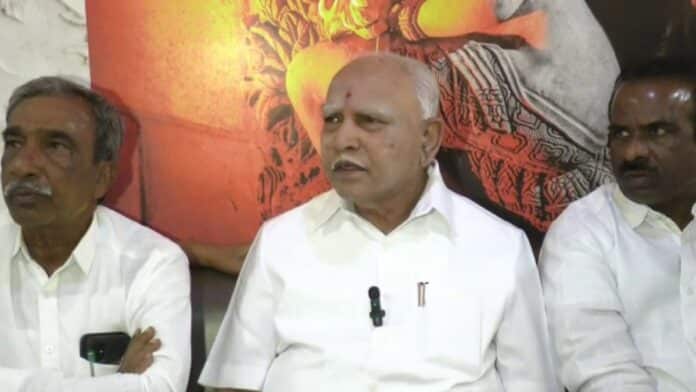In a significant turn of events, the Supreme Court of India has reserved its judgment on a plea by B.S. Yediyurappa, the former Chief Minister of Karnataka and a prominent BJP leader, contesting the revival of a corruption case against him. This case involves allegations of corruption and criminal conspiracy also implicating Murugesh R Nirani, the former Industries minister, and Shivaswamy KS, the former managing director of Karnataka Udyog Mitra.
The controversy rekindled after the Karnataka High Court, on January 5, 2021, revived a complaint by A Alam Pasha, a Bengaluru resident, thereby challenging the previous dismissal of the case due to lack of prior sanction for prosecution. This decision brings into question the role of prior sanction under Section 17A of the Prevention of Corruption (PC) Act after an office has been vacated by the accused.
During the final hearing on April 4, Justices J.B. Pardiwala and Manoj Misra raised pivotal legal queries related to the necessity of government approval for initiating inquiries against public servants and the judiciary’s capacity to mandate investigations. The bench’s inquiry delves deep into the procedural aspects under the Code of Criminal Procedure (CrPC) and the Prevention of Corruption Act, examining the balance between judicial directives and administrative sanction in corruption cases.
The apex court’s scrutiny involves examining whether a judicial magistrate, having ordered a probe under Section 156(3) of the CrPC, which enables magistrates to command police investigations, negates the requirement for prior sanction as outlined in Section 17A of the PC Act. This section stipulates that no inquiry or investigation into offenses alleged against public servants can commence without prior approval from the government if the acts are connected to official functions.
Furthermore, the Supreme Court has framed seven critical questions, primarily focusing on the interplay between the CrPC and the PC Act regarding the need for prior sanction to prosecute public servants. These questions address the considerations necessary for government approval and whether these considerations are beyond the scope of a magistrate’s capacity while ordering an investigation.
The revival of the case stems from Pasha’s accusations that Yediyurappa and others conspired to forge documents to unlawfully clear the allotment of 26 acres of industrial land to him at the Devanahalli Industrial Area. After the 2013 quashing of the initial complaint by the Lokayukta Police due to lack of mandatory sanction, Pasha refiled the complaint in 2014 post the vacating of office by the accused, arguing that the Supreme Court’s ruling in the A.R. Antulay case meant that further sanction was not required. However, this complaint too was dismissed in 2016, leading to the current legal battle in the high court and now the Supreme Court.




